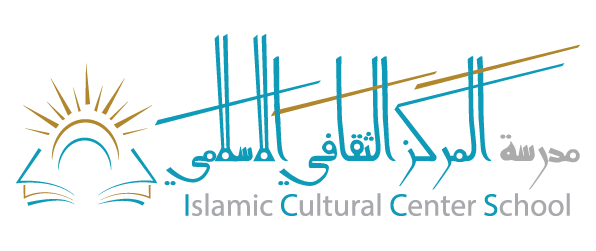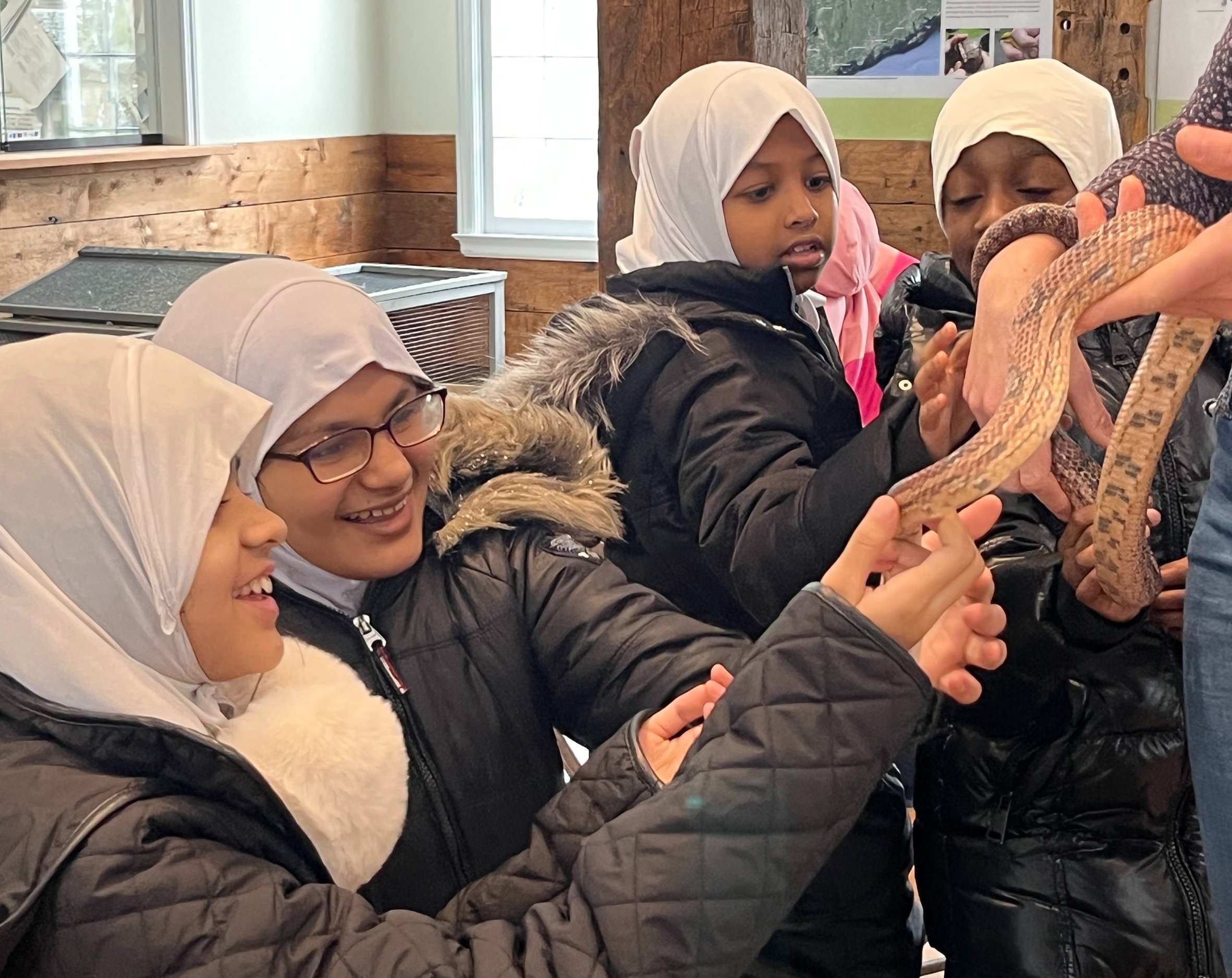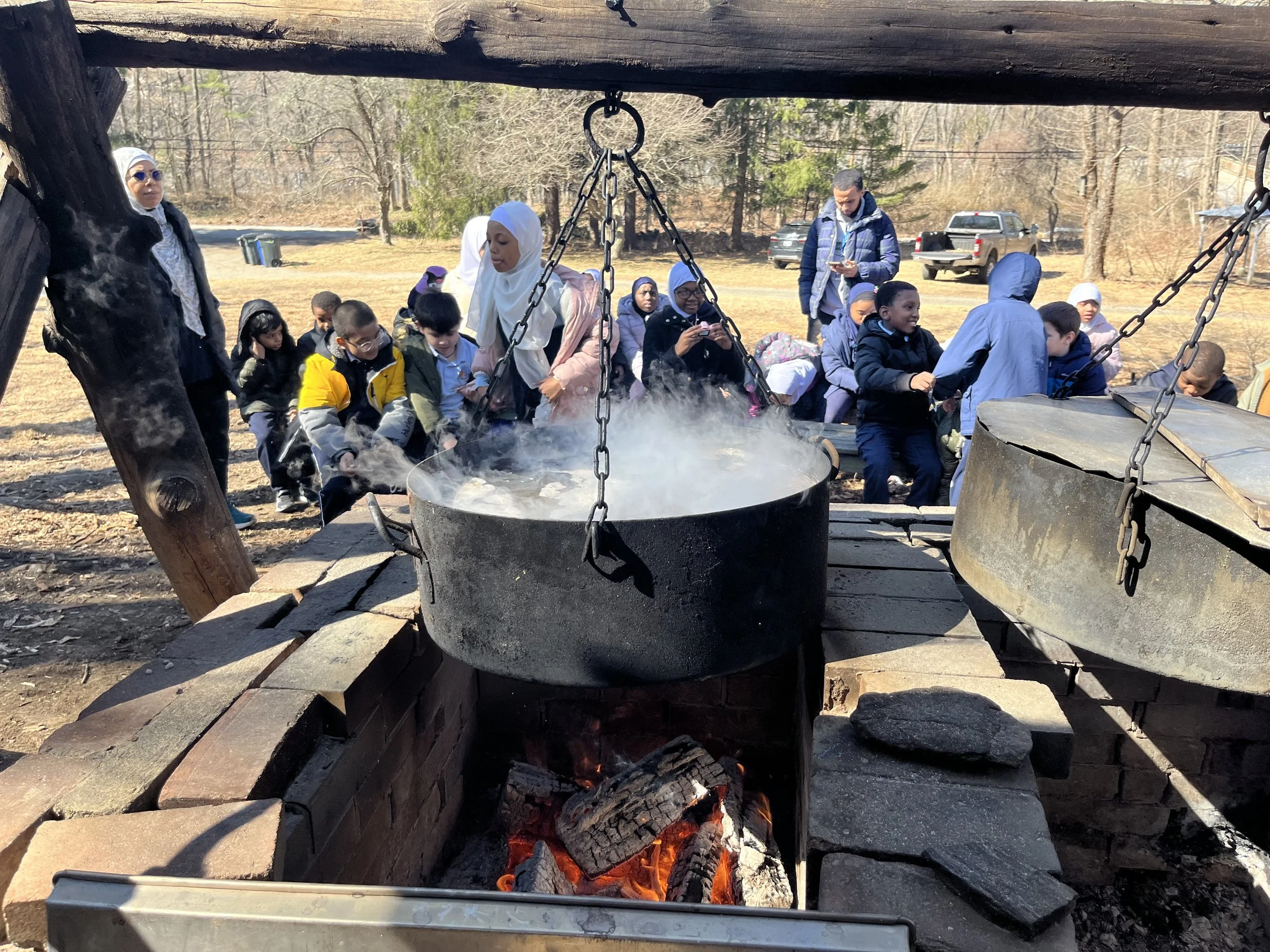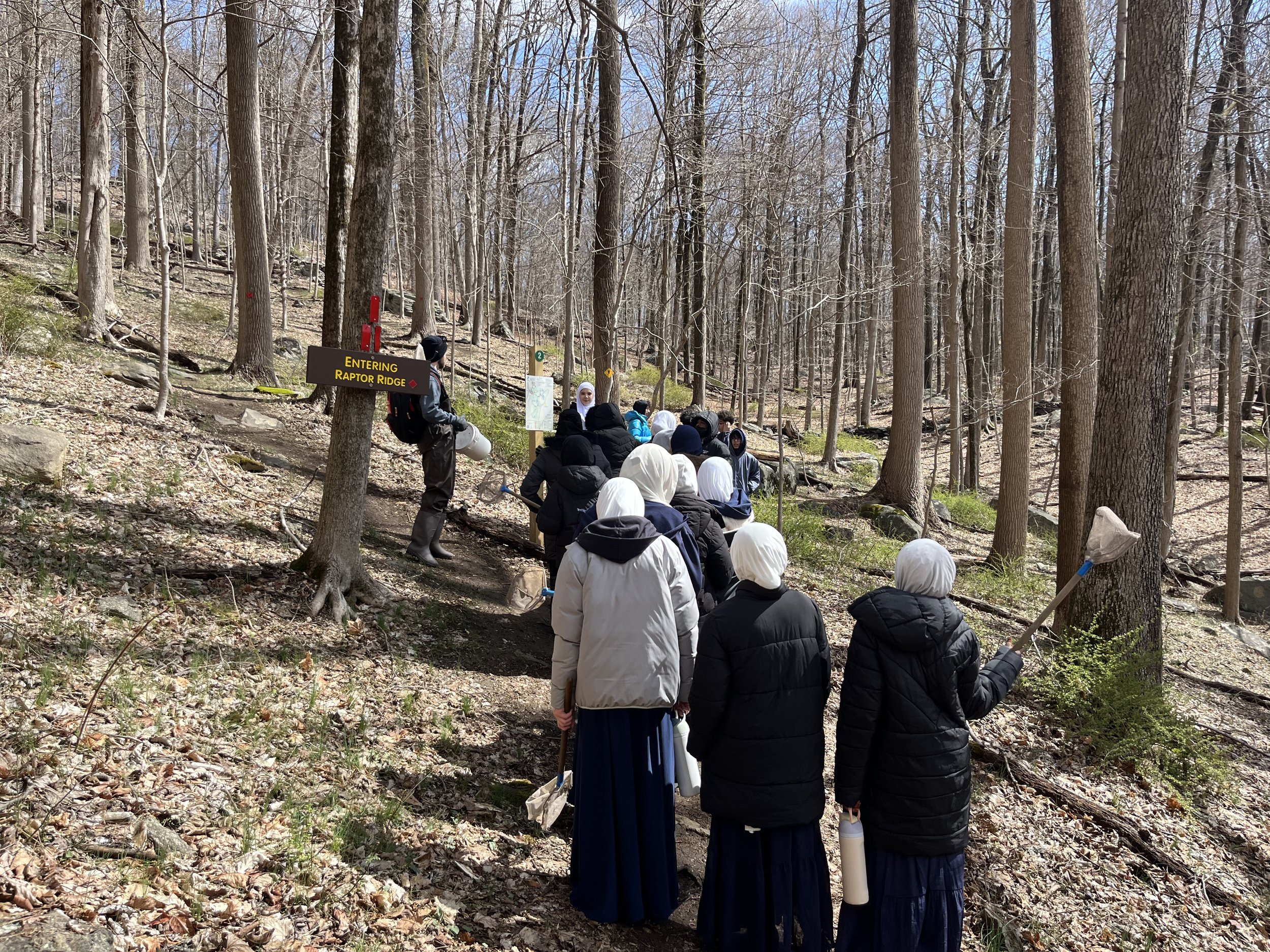
Outdoor Environmental Education at ICC School
(3:190 Quran) إِنَّ فِى خَلْقِ ٱلسَّمَـٰوَٰتِ وَٱلْأَرْضِ وَٱخْتِلَـٰفِ ٱلَّيْلِ وَٱلنَّهَارِ لَـَٔايَـٰتٍۢ لِّأُو۟لِى "ٱلْأَلْبَـٰبِ
“Verily, in the creation of the heavens and the earth, and in the succession of night and day, there are indeed messages for all who are endowed with sight.” (3:190 Quran translation by Asad, 2003)
The natural world is a living classroom, alive the quiet miracles unfolding in every leaf and stone. In the Qur’an, these signs of creation are more than beautiful—they are invitations from the Creator to pause, reflect, and recognize His wisdom and majesty in all things.
At ICC School, we guide students on a journey of wonder and reflection. Surrounded by the textures, colors, and sounds of nature, they come to see the Earth as a ni’mah, a blessing bestowed upon us by Allah. Through Quranic teachings and immersive exploration, we help our students awaken to Islam’s call to protect and preserve the environment, while nurturing a lifelong sense of responsibility toward all living things. Rooted in Islamic teachings, our outdoor experiences nurture awe, gratitude, and a deep sense of responsibility to cherish and care for the environment.
Our students connect with nature in 670 acres of a wildlife preserve. In the heart of Mount Kisco, NY, our students explore 670 acres of preserved wilderness at Westmoreland Sanctuary. As they hike the trails, visit the nature museum, and observe the streams, ponds, and mature forest ecosystems, they develop a profound connection to all living things—and to themselves. These immersive experiences do more than build environmental awareness; they awaken a sense of wonder, reflection, and responsibility. In Islam, we are appointed stewards (khalifa) on Earth. Time in nature nurtures the quiet confidence that comes from feeling deeply rooted in creation and our role in protecting it.
Our students learn about Islamic values through nature. Through hands-on environmental projects and guided discovery led by specialists in environmental studies, curriculum design, and Islamic studies, students reflect on the oneness and interconnectedness of creation, compassion for all living beings, and the ethics of environmental care. They learn to recognize excess as a form of harm and moderation as a divine principle. One of the most powerful lessons comes from simply observing how Allah designed nature to recycle itself. This divine model of sustainability inspires students to adopt similar habits in their own lives: to reduce, reuse, recycle, and restore balance.
Our students are offered a wide range of outdoor environmental education lessons. Our program offers a dynamic blend of outdoor learning grounded in environmental science and Islamic ethics. Naturalists and teachers co-design lessons that cultivate environmental literacy, critical thinking, and a reverence for creation. Students study pond and forest ecology, native flora and fauna, seasonal change, animal anatomy, and biomimicry. They practice survival skills, explore conservation efforts, and even touch on basic chemistry. Each lesson invites students to observe, reflect, and act—reinforcing the Islamic concept of ihsan (excellence and beauty in conduct) in how we treat the Earth and its creatures.

A child wearing a white headscarf, black coat, and snow boots crouches in the snow, making a snow angel. There are footprints around them and another person in the background.
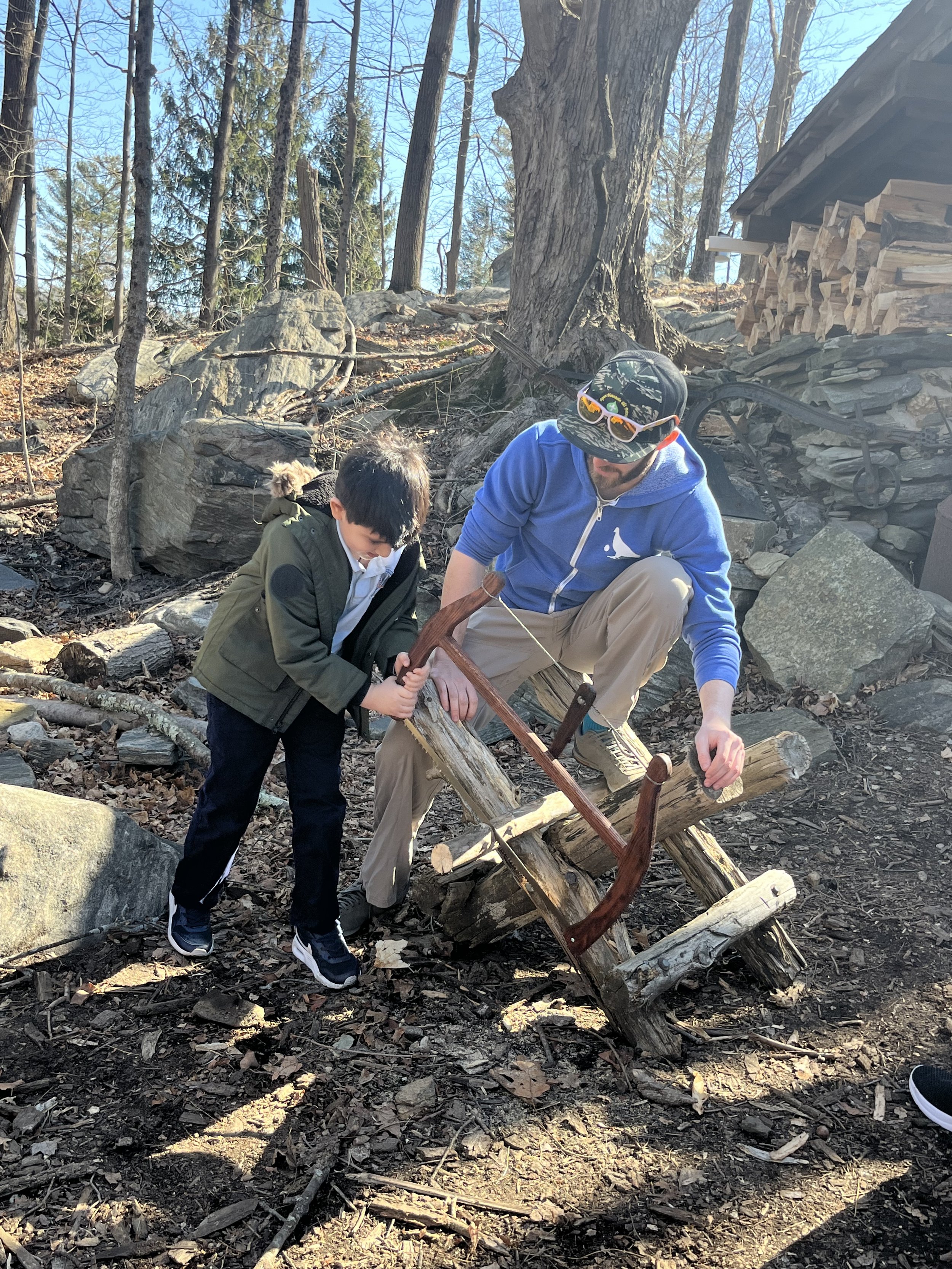
A man and a boy chopping a log with a hand saw outdoors in a wooded area.
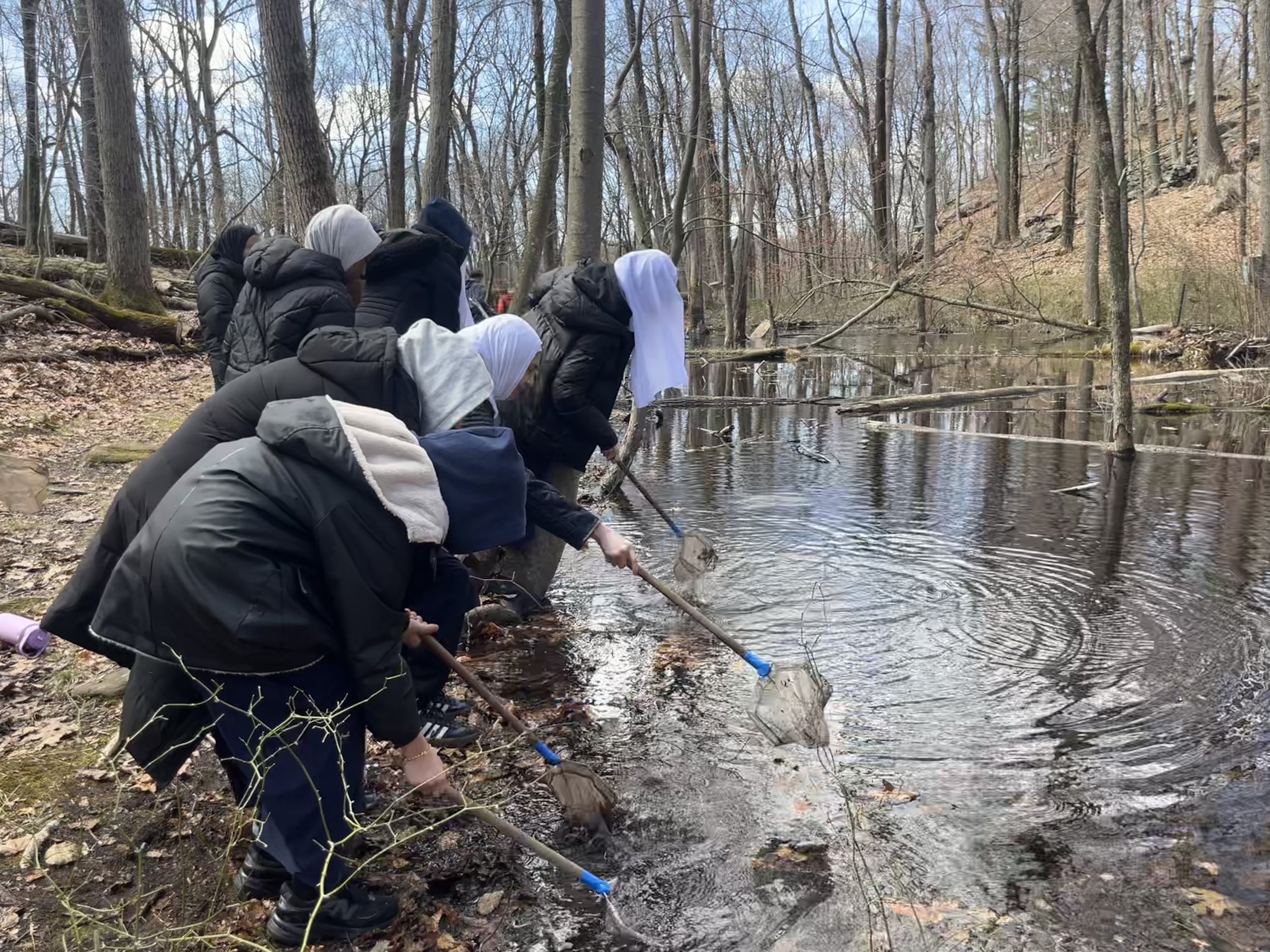
Group of children and adults in jackets and head coverings using nets to catch fish in a wooded river.

A group of children examining a tree with a power drill outdoors during daytime.
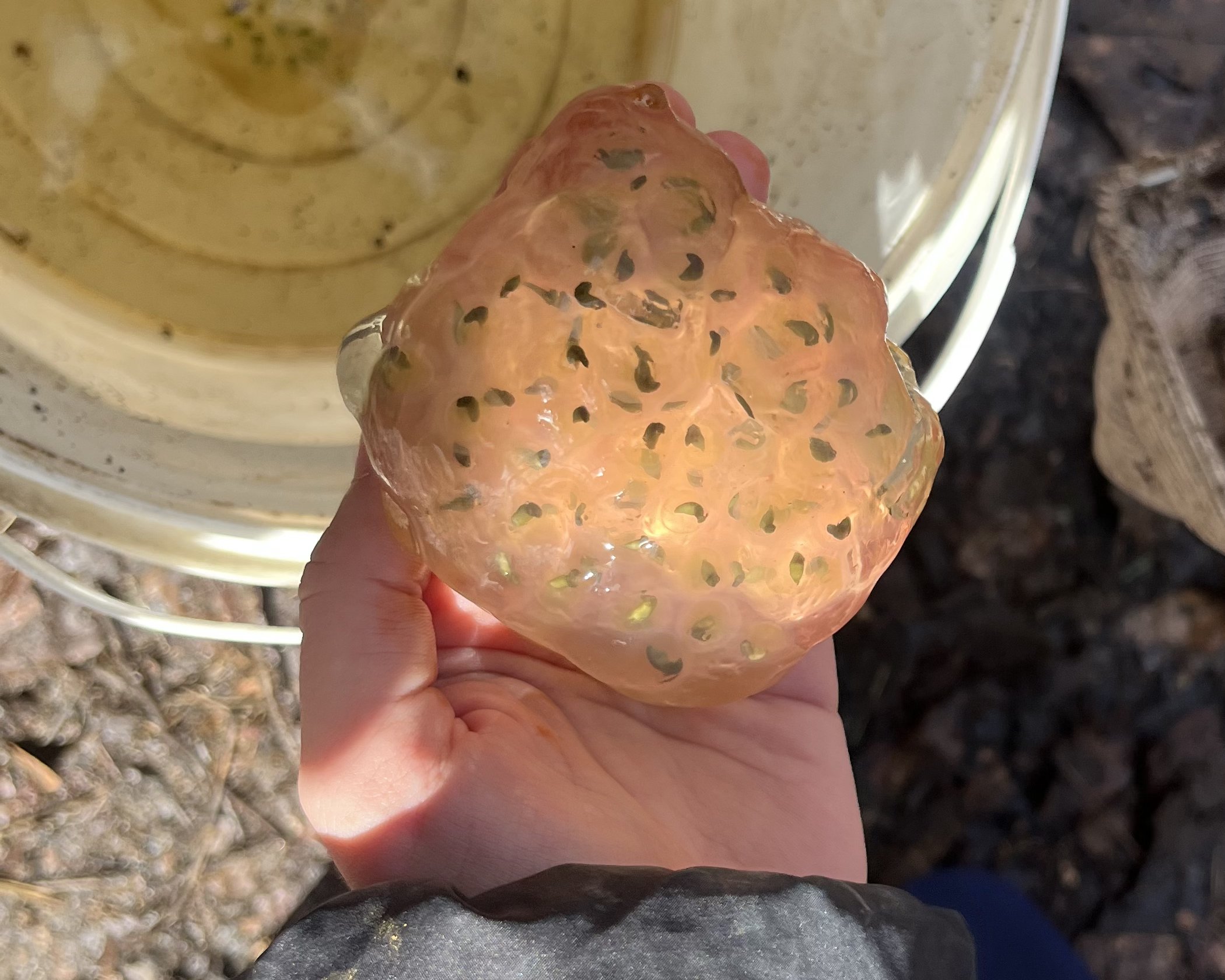
A person holding a translucent, orange-colored object with black spots, resembling a sea sponge or coral, with a yellow bucket in the background.

Four children planting a wooden post in a snowy forest.

WHAT OUR STUDENTS ARE SAYING
Our deen significantly impacts our attitude towards nature by teaching us to respect it, care for it, and offer high regard to its well-being.
One day, Sa’ad ibn Abi Waqaas was making wudu, or ablution. As a matter of fact, Sa’ad was known to be very devoted to the word of Allah. Prophet Muhammed (SAW) observed that Sa'ad used an excessive amount of water to wash. He stopped him and said “What is this extravagance, oh Sa’ad?” To which Sa’ad then replied, “This is extravagance?” The Prophet Muhammad (SAW) replied, “نَعَمْ وَإِنْ كُنْتَ عَلَى نَهْرٍ جَارٍ” “Yes, oh Sa’ad, this is extreme extravagance, wasting, even if you are by a flowing river.” It is still considered a waste, even if there is an endless supply of water, right at his feet. This is why we have to be mindful about how much we are using, even if there is an endless amount.
Islam is more than just a faith - it’s a way of life that guides us in everything we do. From protecting our health to caring for our Earth, our deen teaches us responsibility, respect, and balance. If we follow these principles, we not only strengthen our connection with Allah but also build a better world. So let’s live our faith with purpose, and strive to make a difference every day.
— S. H., Grade 7 student

